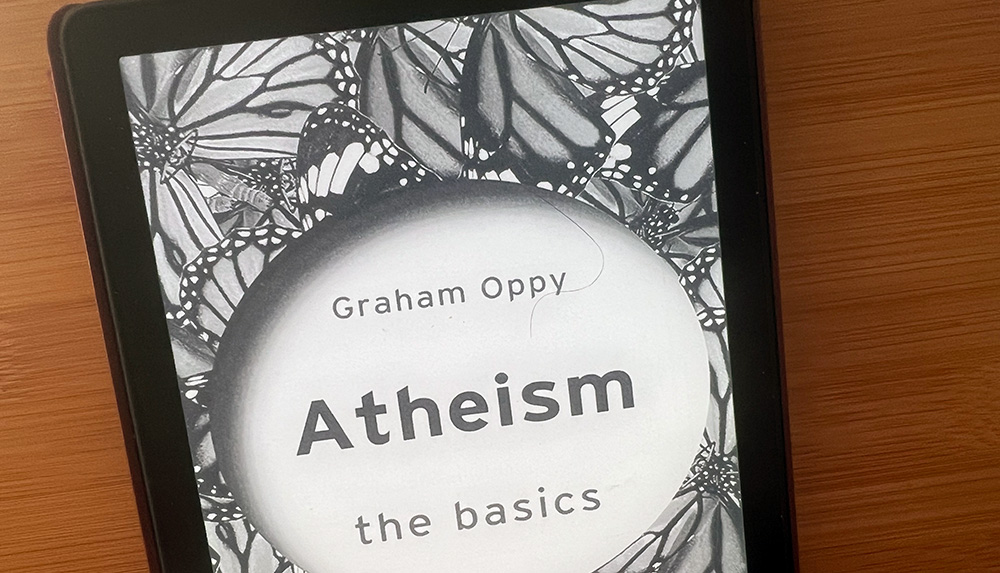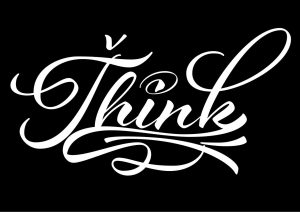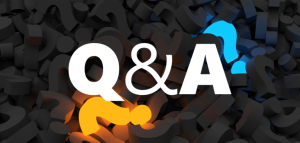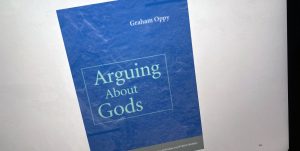In this post, we will examine “Atheism” and propose a definition that enables people to identify as atheists while remaining consistent with the broader landscape of the philosophy of religion.
Why would we do that, you might say, pointing to the fact that there are dictionaries, encyclopedias and organisations that have already done this work for us. Well, it turns out that a lot can be gained by analysing this a bit deeper to see whether what they say makes sense or is the result of organisations wanting to gain members and/or of dictionaries being unduly influenced by religious traditions.
If you wish to skip ahead, here’s the definition I feel is appropriate (Spoiler Alert!)
Atheism is a belief that there is no God or gods.
Simplified from Graham Oppy – and in line with Philosophy of Religion
Popular atheistic sources
Let’s start with the most popular definition you will see online.
Atheism is one thing: A lack of belief in gods.
Amertican Atheists. Accessed 19 Aug. 2024.
You see, the phrase “a lack of belief in gods” is, in my view, far too broad, in the sense that by this definition, children, or the people who were never exposed to an idea of gods or intellectually incapable people with severe brain trauma and maybe even animals, all qualify as atheists.
And if we’re cynical theists, we could even make fun of atheists and say that things are to be included here, like computers, microwave ovens and the like, meaning that our laptops are atheists. Naturally, this would be nonsense, as laptops or shoes are not like people who were never introduced to the idea of gods, but the lack of precision here certainly doesn’t help with the trolling.
This criticism fails to mention the agnostics, who also lack belief in gods. I suspect the definition was made as broad as possible to cover as many people as possible.
While I became an atheist during the New Atheism, and still am one, I now think that a lot of “New Atheist” materials, speakers and sources prefer the “weaker” definition to attract more people to identify as atheists.
This might have sounded too harsh. I apologise, as I had no idea this was indeed the case. I certainly did not mean to accuse them of being dishonest, as I have no evidence for it. As there are millions of atheists in the world, it is only natural that some people understand things differently, even after a sincere examination and introspection, as other people do. The founders of this society may have done what we will do next, but have come to a different conclusion.
After all, if we are to be sceptical, rational and honest with ourselves, we should attempt to temporarily set aside this definition and try to see for ourselves if we might find a definition that is consistent with the nature of belief, as well as being distinct from other similar definitions. In short, let’s see if we can do better than the most popular definition in many online atheist communities. After all, having considered the possible criticisms, as stated above, we ought to see what else is out there before embracing this one.
Dictionaries
Let’s begin by looking up the definition of Atheism in a dictionary, then see whether we agree with it or if it tells an incomplete story.
the fact of not believing in any god or gods, or the belief that no god or gods exist:
ATHEISM | English meaning – Cambridge Dictionary Accessed 19 Aug. 2024.
Now, this makes me feel optimistic that people, when searching for what Atheism is, will indeed come very close to what, in my view, Atheism is—or at least what it should be defined as.
However, the first part of the definition is still too broad—the fact of not believing in any god or gods—or, even if it does escape the charge of being too wide, it is still at least ambiguous. At least to me, as a non-native English speaker, it is not immediately apparent if this includes only people who gave it serious consideration or consists of the so-called “innocents” as well.
Yes, you might squirm a little if you’re used to the most popular definitions you see online, but in my opinion. In contrast, this definition is more intellectually honest, but it doesn’t go far enough.
Namely, the first part, depending on how the words “not believing” are understood, sounds very close to the most popular online definitions of the New Atheists. This part (before the “or”) —the fact of not believing in any god or gods —would potentially include babies and children, as well as people who weren’t introduced to the idea of gods. It also contains agnostics, who also have the “fact of not believing”.
All this, IMO, shows that this definition would make the position a bit too broad, as it would, at the very minimum, place agnostics and atheists in the same group. Agnostics in no way should be on anything close to equal footing with people who fulfil the second part – have “the belief that no god or gods exist“.
Yes, you could argue that the phrase “fact of not believing” is not the same as “lack of belief”, and you might be correct. But then we still have the first part of the definition open to interpretation – and in my view, this muddies the waters too much, mainly because even if you succeed in excluding babies and people who were never introduced to the idea of god or gods, agnostics also have both a “lack of belief” and the “fact of not believing”, so, even if it is the best one a mainstream source does provide, this definition is in my view not precise enough, because of all these ambiguities.
However, it certainly isn’t guaranteed that this definition from the Cambridge Dictionary will be what someone will find in their googling. Let’s look at another entry, this time from a different dictionary, namely Merriam-Webster.
A: a lack of belief or a strong disbelief in the existence of a god or any gods
“Atheism.” Merriam-Webster.com Dictionary, Merriam-Webster, https://www.merriam-webster.com/dictionary/atheism. Accessed 19 Aug. 2024.
B: a philosophical or religious position characterized by disbelief in the existence of a god or any gods
Although I have great respect for Merriam-Webster and consider their work of superb quality, I believe that, in this case, they may have generalised too broadly, aligning more closely with popular atheist sources and the ideas of “New Atheism.”
A “lack of belief” is the problematic phrasing here, because, as I tried to explain above, it is way too broad and includes agnostics and “innocents” as well. Regarding the second part of the definition, it would depend on what is meant by the word “disbelief”. If it is intended as non-belief or not being able to believe the claim, then we can say that agnostics have the same thing.
If we assume that by “disbelief” we mean that we reject something as untrue, only possibly then we can claim that this sufficiently differentiates Atheism from agnosticism, as agnostics have a “lack of belief” as well.
So, if we use this definition, we are either too broad or are forever stuck explaining what we mean by the word “disbelieve”.
So, dictionaries don’t get us very far if we’re interested in clearly defining Atheism as distinct from agnosticism or “innocence”. We have to go further and examine what philosophy has to say about it.
Philosophy
As you can read in the “Atheism and Agnosticism” entry in the Stanford Encyclopedia of Philosophy, Atheism may have multiple meanings. It can be defined in the psychological sense, with Atheism being a psychological state of an atheist, being someone who isn’t a theist and a theist being someone who believes that at least one god exists.

However, that is not what philosophers mean when they talk about Atheism. In philosophy, “atheism” does not simply mean “lack of belief” but, most often, a belief that no God or gods exist.
In philosophy, however, and more specifically in the philosophy of religion, the term “atheism” is standardly used to refer to the proposition that God does not exist (or, more broadly, to the proposition that there are no gods). Thus, to be an atheist on this definition, it does not suffice to suspend judgment on whether there is a God, even though that implies a lack of theistic belief. Instead, one must deny that God exists.
Draper, Paul, “Atheism and Agnosticism”, The Stanford Encyclopedia of Philosophy (Summer 2022 Edition), Edward N. Zalta (ed.), URL = <https://plato.stanford.edu/archives/sum2022/entries/atheism-agnosticism/>.
However, they do not necessarily say that this definition means that to be an atheist, you must claim that theism is false, but that instead, you might justifiably call yourself an atheist if you claim that you reject the sentence “God exists”, not necessarily because it is a false proposition but on any other grounds, like for example that the sentence is meaningless.
To keep the definition short, understandable, and consistent with the definitions of other positions, I have adopted a definition proposed by the Philosopher Graham Oppy in his book Atheism—the Basics, published in 2018.
Atheism is the claim that there are no gods and atheists are those who believe that there are no gods.
Graham Oppy, 2018.
Or if we wish to have a more compact definition while also not committing ourselves to claiming to know that there are no gods, we might, I believe, justifiably tweak this definition a little bit:
Atheism is a belief that there is no God or gods.
Simplified from Oppy 2018 – and in line with Philosophy of Religion
Now, at least to me, this is not the same as the word “disbelief” we saw in the dictionary definitions above. Let’s see how and why philosophers, in general, came to understand Atheism in this way.
Well, as I understand it at this point and based on what I know so far, there are roughly four positions you might take on belief. When it comes to the proposition that a god might exist, these are the positions you might take:
- Yes – theist
- No – atheist
- Suspend judgment – agnostic
- No opinion / not possessing a concept of God – innocent
We’ll spend just a few more sentences to try to explain a bit more about what is meant by each one. Let’s start with the weakest.
Innocents
First, we have to consider that for any proposition, there might be people who have never considered it or are unable to think about it. These always include babies, patients with advanced Alzheimer’s and people who have suffered severe brain trauma, making them unable to form thoughts about such concepts.
Then there are, of course, regular people who haven’t heard of the idea so far and thus never even considered it. I imagine it is not that difficult for us to see how this might be true about any of us, depending on the idea. I have seen this group labelled as “innocents”, and I quite like that label, so I will continue using it.
All these people have no opinion on the idea that gods might exist, and therefore they can also be characterised as having a “lack of belief” or as “failing to believe”. So, if we say that Atheism is a lack of belief, we would implicitly give atheists who have seriously considered the idea of god and even those who are certain that there are no gods the same label as those who have never thought about the concept or those who are unable to think about the idea.
Agnostics
After people who didn’t or can’t entertain the idea about the existence of gods, come the people who have indeed considered the question of whether there are gods but have suspended judgment about it – they neither believe that there are gods nor think that there are no gods.
In this sense, agnostics are similar to the innocents in that they lack the belief that there are gods, but differ from them in considering the question of whether there are gods and suspending judgment. This position can be summarised very, very roughly as “maybe, maybe not”.
Agnosticism, as I understand it, in principle either suggests that it is obligatory to suspend judgment or that it is permissible to suspend judgment.
There is a great deal to say about agnostics and agnosticism, but that would be going out of bounds here. I believe that it is sufficient to say that agnostics hold that in the absence of positive evidence for god or gods, you don’t have to think that there are no gods, but you are allowed to suspend judgment, in the sense that they are permitted to refuse to decide. Whether they believe in gods or whether they believe that no gods exist, they suspend judgment.
It is relatively easy to see that agnostics “lack belief” as well – they fail to believe that there is a god, but they also do not believe there is no god.
Atheists
Naturally, by now we already know how we are to define Atheism—that is, it is contrasted with theism in the sense that while theism answers “Yes” to the proposition “There is a God” or “There are gods”, Atheism would answer “No”.
Note that while Atheism also includes the “lack of belief” of agnosticism or innocence, we already have two groups that lack belief, albeit for different reasons. Atheism, I believe, does more than simply not considering claims or suspending judgment, as it answers “No” to the “There are gods” idea.
And that would naturally mean that Atheism is indeed best defined as a “belief there’s no God or gods”, as this makes it distinct from agnosticism or innocence.
Now, there is still room for many nuances within Atheism itself—for example, the strength of belief, or conviction, if you will. Some are very slightly on the side of the belief that there are no gods, and some are certain that there are no gods. Then there’s also the question of the resilience of belief: some hold it with firm conviction, resistant to revision, while others have it with weak conviction, and it is a belief they could easily lose.
There are, of course, further considerations of other attitudes and metrics inside Atheism, for example, some atheists are interested in “converting” others, and some do not care. Some atheists would like for it to be the case that there’s no god, some do not have a preference, but they believe there isn’t one, and so on. So it is essential to consider all this when talking to people and to avoid applying too broad a brush. Yes, definitions are helpful, but it is necessary to remember that we are all individuals and to avoid putting people in boxes as a general principle.
Hard (‘strong’, ‘positive’) and Weak (‘soft’, ‘negative’) Atheism
Even though the above is true, I still believe we should discuss the concept of strong and weak Atheism, as I have previously supported it myself.
In atheistic circles, this distinction boils down to whether a person believes that there is no god or lacks belief (fails to believe) that there is a god. So, if you believed that there’s no god, you would be a strong atheist, but if you failed to believe there’s a god, you would be a weak atheist.
However, if you have read this far, you can probably already see the problem: because “innocents” and agnostics also fail to believe that there’s a god, if we adopt this distinction inside Atheism, we would be claiming that innocents and agnostics are atheists. And we do not wish to do that, as we should try to distinguish among all these groups and not muddy the waters.
Given that there are enough distinctions within Atheism — regarding conviction, resistance to change, interests, and so on — as mentioned above, it is already the case that Atheism is not binary. This attempt to further split it into two views is not helpful, and as there are more than two views, it is doomed to fail.
Now, this all might mean that there will be fewer atheists than there would be if we stick with a definition from popular atheistic sources. Still, if we value living honestly, I believe we should be open to reexamining our beliefs and, if needed, adjusting our own identity. For example, some might want to take a step back from Atheism and call themselves agnostic. And whenever a person is willing to reexamine their beliefs and even their very identity, we should support this.
Conclusion
We have tried to examine the definition of Atheism truthfully and consistently, and we agreed with the definition from the philosophy of religion.
Atheism is a belief that there is no God or gods.
Oppy 2018 – and in line with Philosophy of Religion
In the end, our justification is that this definition makes us consistent with other viewpoints on matters of belief. When it comes to the question of whether there’s a god (whether there are gods), these are roughly the possible viewpoints:
- Yes – theist
- No – atheist
- Suspend judgment – agnostic
- No opinion / not possessing a concept of God – innocent
This ensures that no people fall into more than one category at a given time, while still recognising that there are many differences within each category.




